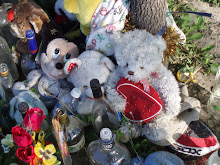From A Tale of Two Cities by Charles Dickens
When he got out of the house, the air was cold and sad, the dull sky overcast, the river dark and dim, the whole scene like a lifeless desert. And wreaths of dust were spinning round and round before the morning blast, as if the desert-sand had risen far away, and the first spray of it in its advance had begun to overwhelm the city.
Waste forces within him. and a desert all around, this man stood still on his way across a silent terrace, and saw for a moment, lying in the wilderness before him, a mirage honourable ambition, self-denial, and perseverance. In the fair city of this vision, there were airy galleries from which the loves and graces looked upon him, gardens in which the fruits of life hung ripening, waters of Hope that sparkled in his sight. A moment, and it was gone. Climbing to a high chamber in a well of houses, he threw himself down in his clothes on a neglected bed, and its pillow was wet with wasted tears.
Sadly, sadly, the sun rose; it rose upon no sadder sight than the man of good abilities and good emotions, incapable of their directed exercise, incapable of his own help and his own happiness, sensible of the blight on him, and resigning himself to let it eat him away.
skip to main |
skip to sidebar








Even in our sleep pain that cannot forget Falls drop by drop upon the heart Until in our own despair Against our will Comes wisdom Through the awful grace of God. Escalus








About Me
- Mr. Boston
- I am now a third year teacher. Before I moved to Chicago I worked in juvenile rehabilitation schools, a suburban school, and was a volunteer teacher for a summer in New Orleans after Hurricane Katrina. I went to Michigan State University. My students think I look like Mr Boston. This really pisses me off.
What we do for ourselves dies with us.
What we do for others and the world remains and is eternal.
Albert Pine
What we do for others and the world remains and is eternal.
Albert Pine